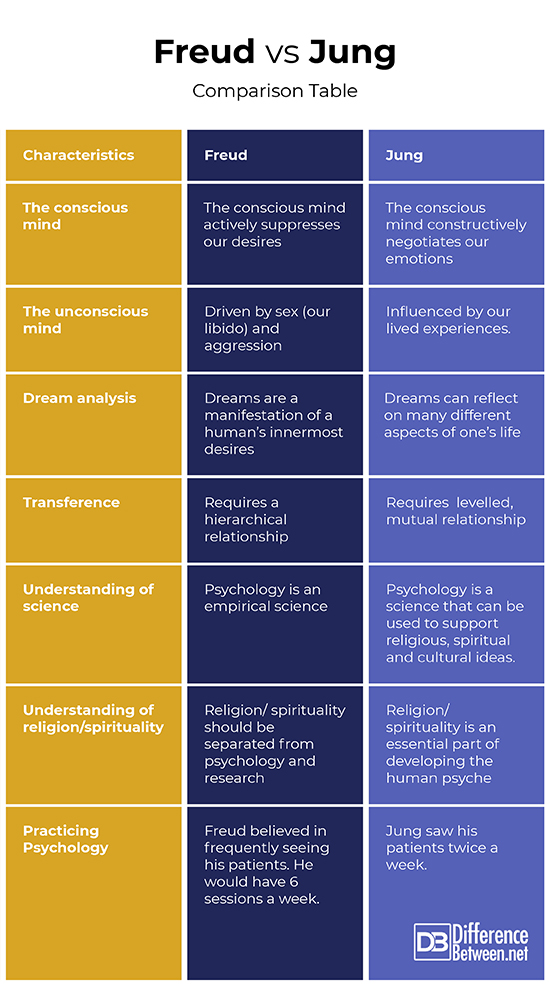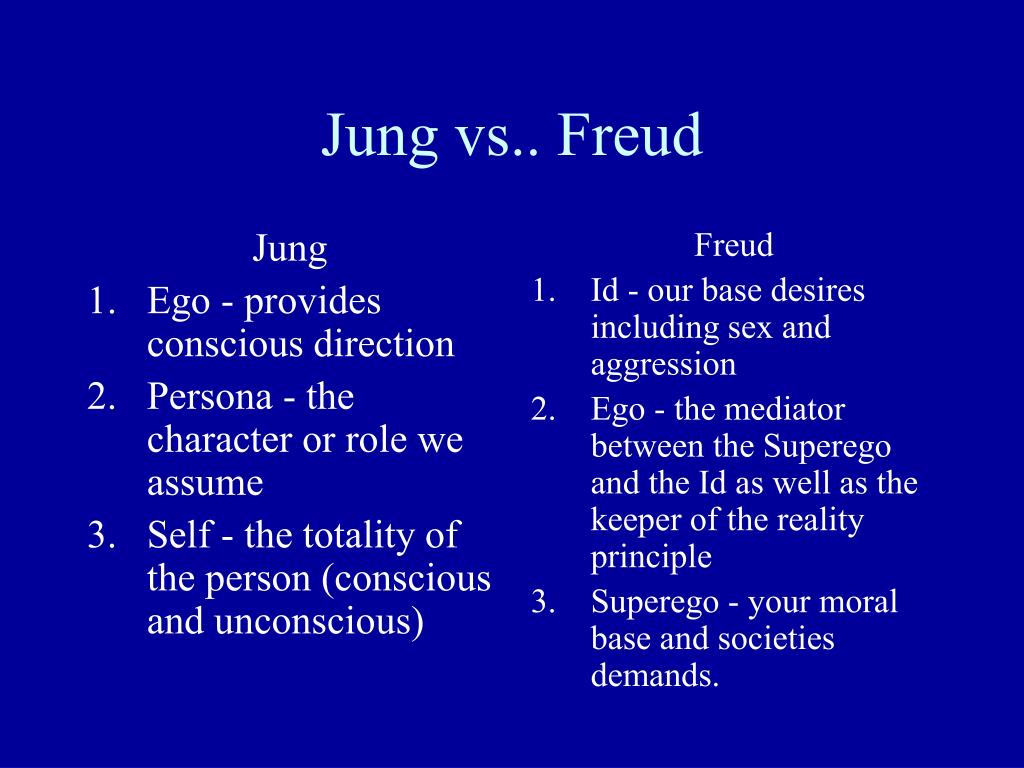differences y similarities of freud y jung
Freud and Jung, two titans of psychology, both made significant contributions to our understanding of the human mind. However, their theories diverge in several key areas while also sharing some fundamental ideas.
Similarities:
-
Focus on the Unconscious: Both Freud and Jung emphasized the importance of the unconscious mind in shaping human behavior. They believed that much of our emotional and psychological experiences are influenced by unconscious processes that operate below the level of conscious awareness.
-
Psychoanalytic Foundations: Both theorists fundamentally contributed to the field of psychoanalysis. They explored deep psychological concepts and the dynamics of inner conflicts, setting the groundwork for therapy that addresses these unconscious influences.
-
Dream Analysis: Freud and Jung both utilized dream interpretation as a tool for understanding the psyche. They believed that dreams reveal deeper insights into the unconscious and can be a window into personal and universal themes.
Differences:
-
The Nature of the Unconscious: Freud's model of the unconscious is more focused on repressed desires, particularly sexual and aggressive instincts characterized by the id, ego, and superego structure. In contrast, Jung introduced the idea of the collective unconscious, which consists of shared memories and archetypes that transcend individual experiences and are common across cultures.
-
Approach to Human Motivation: Freud emphasized sexual and aggressive impulses as the primary drivers of human behavior. Conversely, Jung advocated for a broader view that includes spiritual and self-actualizing motivations, highlighting the quest for personal wholeness.
-
Developmental Theories: Freud's psychosexual stages focus on childhood experiences aimed at sexual development, whereas Jung's perspective on development emphasizes lifelong growth and individuation, the process of integrating various parts of the self into a unified whole.
-
View of Religion and Spirituality: Freud held a more skeptical perspective on religion, seeing it as an illusion and a projection of human desires. In contrast, Jung viewed spirituality and myths as essential components of psychological development and health, integrating these themes into his theories.
For further exploration of their differences and similarities, you can refer to resources like Harley Therapy for a detailed comparison, Oliver Q. Walker's Medium article that outlines contrasting approaches, and Quora discussions that delve into how Freud viewed Jung's potential as a successor in the field of psychology.
Sources


Related Questions
Work fast from anywhere
Stay up to date and move work forward with BrutusAI on macOS/iOS/web & android. Download the app today.
